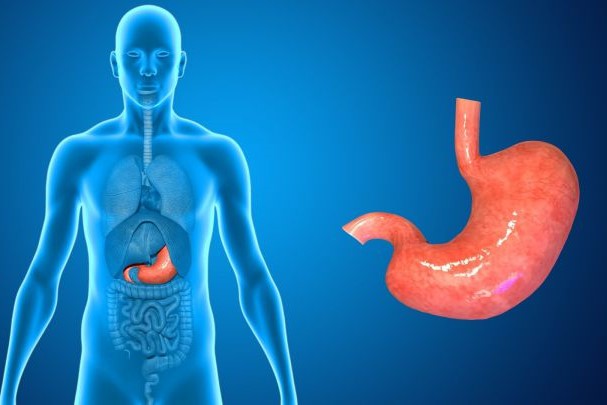
Indigestion or dyspepsia, what to do? The new guidelines
Published data indicate that about 7% of the general population suffers from functional dyspepsia or poor digestion, but the figure appears lower than the real numbers, above all because most patients do not get to see a doctor to solve the problem
Diagnosis of dyspepsia: general indications
The latest guidelines from the British Society of Gastroenterology were published in 1996 and in July 2022 were published in Gut, updated and revised.
These are the observations and indications of one of the most authoritative scientific societies:
- Most patients with dyspepsia DO NOT have an underlying pathology identifiable with the diagnostic means available and are therefore affected by so-called ‘functional’ dyspepsia.
- In the absence of alarming signs or symptoms (age over 45-50 years, significant weight loss, gastrointestinal bleeding, anemia, difficulty swallowing, persistent vomiting, family history of tumors of the digestive system), the diagnosis of dyspepsia can be made if the patient reports pain or burning, early satiety with or without bloating for at least 8 weeks.
- The quality of the doctor-patient relationship and the sharing of information regarding the pathology is essential for a good therapeutic result.
- In patients over the age of 55, it is indicated to perform a blood count and serology for celiac disease, especially if symptoms referable to irritable bowel syndrome coexist.
- In the absence of other symptoms, a prompt gastroscopy should be performed in patients over 55 years of age with weight loss and also over 40 if they live in an area with a high incidence of gastric cancer or with a family history of oesophagogastric neoplasia.
- A non-urgent gastroscopy is indicated in patients over the age of 55 who are unresponsive to therapy, have an elevated platelet count, or nausea and vomiting.
- In patients older than 60 years with abdominal pain and weight loss, a prompt abdominal CT scan is indicated to rule out pancreatic cancer.
In all other dyspeptic patients it is indicated to perform a non-invasive test for the search for helicobacter pylori and, in case of positivity, to prescribe an eradication therapy with possible verification of the successful eradication at the end of the treatment.
In helicobacter pylori negative patients, empiric antacid therapy may be prescribed.
In the presence of diagnostic doubts, severe symptoms or symptoms that do not respond to first-level therapy, the patient should be referred to a specialist.
In the presence of typical symptoms, it is not recommended to routinely perform secondary tests such as esophageal ph metry.
Management of the difficult patient should be multidisciplinary.
How to cure functional dyspepsia?
As regards the therapy of functional dyspepsia, the following indications can be summarized.
It is always advisable to advise and encourage adequate physical activity.
There is insufficient evidence to indicate dietary limitations or food restrictions.
Eradication therapy in the presence of helicobacter pylori infection is indicated and effective.
H2 blockers (cimetidine and derivatives) are effective and well tolerated.
Proton pump inhibitors (omeprazole and derivatives) are effective and well tolerated.
Some prokinetics may be effective and generally well tolerated.
In case of non-response to therapy, tricyl antidepressants, antipsychotics such as sulpiride and levosulpiride, pregabalin and mirtazapine can be used with good results.
Psychotherapy and hypnosis may play a role in selected cases.
In conclusion, the diagnostic procedure and a correct use of instrumental diagnostics are better defined and, as far as therapy is concerned, the role of dietary indications is reduced.
Bibliographical references
Black CJ et al,Gut 2022;71:1697-1723
Read Also
Emergency Live Even More…Live: Download The New Free App Of Your Newspaper For IOS And Android
Dyspepsia: What It Is, Symptoms, Diagnosis And Treatment
Gastro-Oesophageal Reflux: Symptoms, Diagnosis And Treatment
Functional Dyspepsia: Symptoms, Tests And Treatment
Straight Leg Raise: The New Manoeuvre To Diagnose Gastro-Oesophageal Reflux Disease
Gastroenterology: Endoscopic Treatment For Gastro-Oesophageal Reflux
Oesophagitis: Symptoms, Diagnosis And Treatment
Asthma, The Disease That Takes Your Breath Away
Gastroesophageal Reflux: Causes, Symptoms, Tests For Diagnosis And Treatment
Global Strategy For Asthma Management And Prevention
Paediatrics: ‘Asthma May Have ‘Protective’ Action Against Covid’
Esophageal Achalasia, The Treatment Is Endoscopic
Oesophageal Achalasia: Symptoms And How To Treat It
Eosinophilic Oesophagitis: What It Is, What The Symptoms Are And How To Treat It
Gastroesophageal Reflux: Causes, Symptoms, Tests For Diagnosis And Treatment
Irritable Bowel Syndrome (IBS): A Benign Condition To Keep Under Control
Long Covid, Study In Neurogastroenterology And Motility: Main Symptoms Are Diarrhoea And Asthenia
Symptoms And Remedies Of A Gastro-Oesophageal Reflux Cough
Gastro-Oesophageal Reflux Disease (GERD): Symptoms, Diagnosis And Treatment


